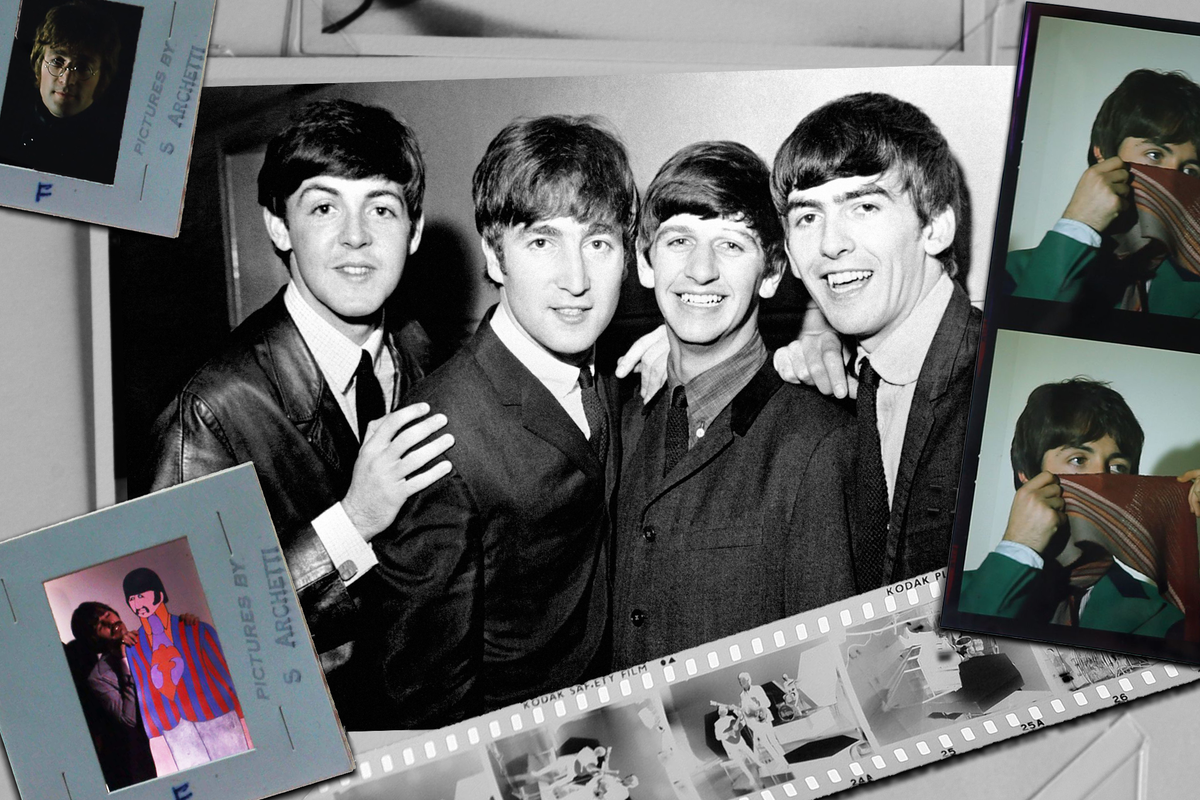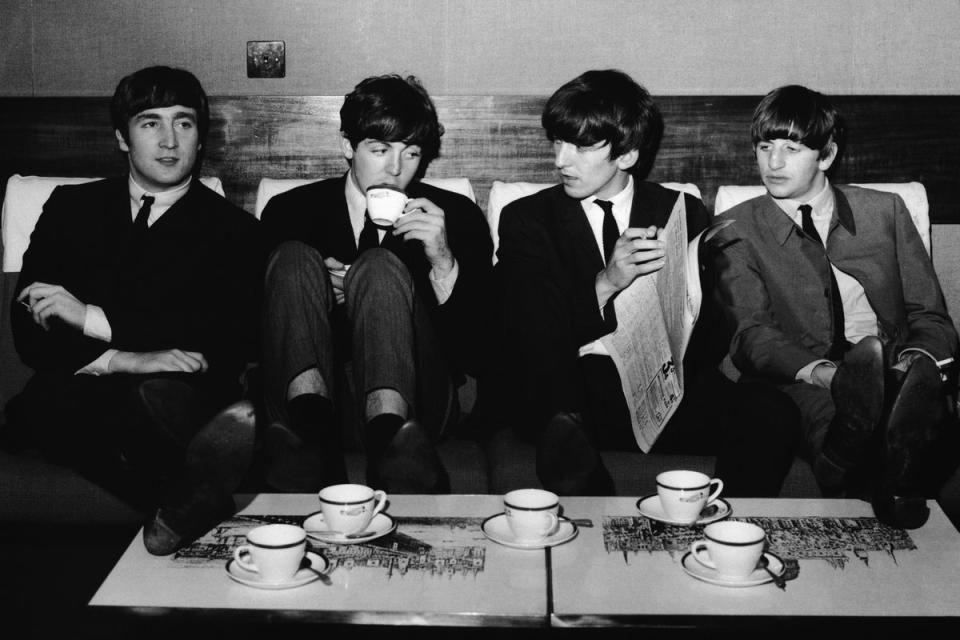Sam Mendes is directing four Beatles films – but which band member will have the best movie?

- Oops!Something went wrong.Please try again later.
- Oops!Something went wrong.Please try again later.
- Oops!Something went wrong.Please try again later.
Roll up, roll up for the Beatles Cinematic Universe. Sam Mendes, the Oscar-winning director behind films like American Beauty and Skyfall, has announced plans to make four separate movies about the biggest band in history, one from the perspective of each member. He’ll presumably be working eight days a week to pull it off.
According to Mendes’ producing partner Pippa Harris, the films together will apparently “tell a single story about the most celebrated band of all time”. But it’s an announcement that raises more questions than it answers. First – and no offence intended, Sir Sam – why Mendes, when Peter Jackson has already spent years tinkering with hours of old Beatles footage and dodgy audio recorded in flowerpots to bring us his staggering documentary Get Back? Will each film cover the exact same time frame, but from different perspectives? Could each movie borrow a different style or genre to better suit the protagonist? And, crucially, which Beatle will give us the best film?
With a controversial whirlwind romance, forays into activism and tragic assassination at the age of just 40, John Lennon’s life story is the most obviously dramatic. No wonder it has already been given the Hollywood treatment, most recently in Sam Taylor-Johnson’s 2009 film Nowhere Boy. It’s a decent evocation of his early years, with Aaron Taylor-Johnson playing the young musician and Kristin Scott Thomas as his formidable Aunt Mimi. Others have tackled his marriage to Yoko Ono (a made-for telly production imaginatively titled John and Yoko: A Love Story, in which a young Peter Capaldi plays George Harrison), his 1980 death (the critically panned Chapter 27, aka the film in which Jared Leto developed gout while putting on weight to play murderer Mark David Chapman), and even a holiday he took with manager Brian Epstein in 1963 (The Hours and Times).
Mendes, then, will have his work cut out finding a new angle on one of the most famous musicians of all time. In order to do so, he’ll have to dig beyond the hagiographies to bring nuance to a difficult character, who could often be caustic and cruel: by his own admission, he was both verbally and physically abusive to his first wife, Cynthia, and also had a strained relationship with their son, Julian. According to Harris, though, while the project does have the blessing of the Beatles and their families, there is “no sense of the band wanting him to tell a particular ‘authorised’ version of their rise to success”, with “nothing off limits” – so perhaps he won’t feel compelled to deify his subject.
Of all the Beatles, it’s Paul McCartney, solid, straightforward Paul, who would probably best suit the traditional rock biopic format: the humble origins, the early tragedy of his mother’s death, the precocious genius, the druggy Sergeant Pepper years and love story with Linda. You’d skip the Wings stuff, probably, before cutting forward to some real footage of say, his 2022 Glastonbury performance to show how he’s still going strong. It’s got “guaranteed Bafta” written all over it. But what about a conspiracy thriller about the “Paul is dead” urban legend, when fans became convinced that McCartney had been killed in a car crash and replaced with a very talented imposter? A romantic comedy about life on the farm with Linda (featuring veggie sausage product placement)? Or just an in-depth psychological investigation into one of the biggest Beatles questions: why did Paul incur the wrath of his bandmates to spend days recording “Maxwell’s Silver Hammer”, a weird nursery rhyme about a hammer-wielding maniac, which he was convinced had the makings of a hit single?
When it comes to the George Harrison movie, may I humbly suggest the title See You Round the Clubs, in homage to his notoriously abrupt goodbye when he briefly left the band during the “Let It Be” sessions. We open with Harrison striding out of Twickenham Studios, wearing one of his massive fluffy coats, before we flash back to him meeting Lennon and McCartney as a teenager. Then we follow along as he starts to feel creatively sidelined and gets really into yoga, before a surprisingly low-key resignation (“I think I’ll be leaving the band now,” he says in Get Back, with very northern understatement) and eventual tentative reconciliation. Throw in some sort of post-credits scene involving Eric Clapton and you’re sorted.

Harrison, who famously called himself the “economy class Beatle” in a nod to his perceived secondary status in the band, would make a genuinely fascinating character study. There’s the love triangle between him, wife Pattie Boyd and Clapton, with whom Harrison remained on good terms even after his friend married his ex. The stint with rock supergroup The Travelling Wilburys (also featuring Tom Petty, ELO’s Jeff Lynne, Roy Orbison and Bob Dylan). And the shocking episode when he was stabbed 40 times by an intruder and nearly died (“He wasn’t a burglar and he certainly wasn’t auditioning for the Travelling Wilburys,” Harrison later quipped – there’s that understatement again).
And then, of course, we have Ringo Starr. Always the butt of Beatles jokes, he deserves to finally have the last laugh. He’s always been painted as a simple soul, willing to turn up, sing “Octopus’s Garden” and bash some drums, so Mendes could lean into that happy-go-lucky persona and show us Ringo careering through swinging Sixties London, bumping into the big names of the day then inviting them back for a knees-up at his fully operational at-home pub, The Flying Cow. All this, of course, should be narrated by Starr himself, in the same warm, strangely ASMR-worthy tones he put to good use in his Thomas & Friends voiceovers. It has all the makings of a cult hit – and to borrow a line from “Act Naturally”, one of the few Beatles tracks for which Ringo provided the vocals, it “might win an Oscar, you can never tell”.

